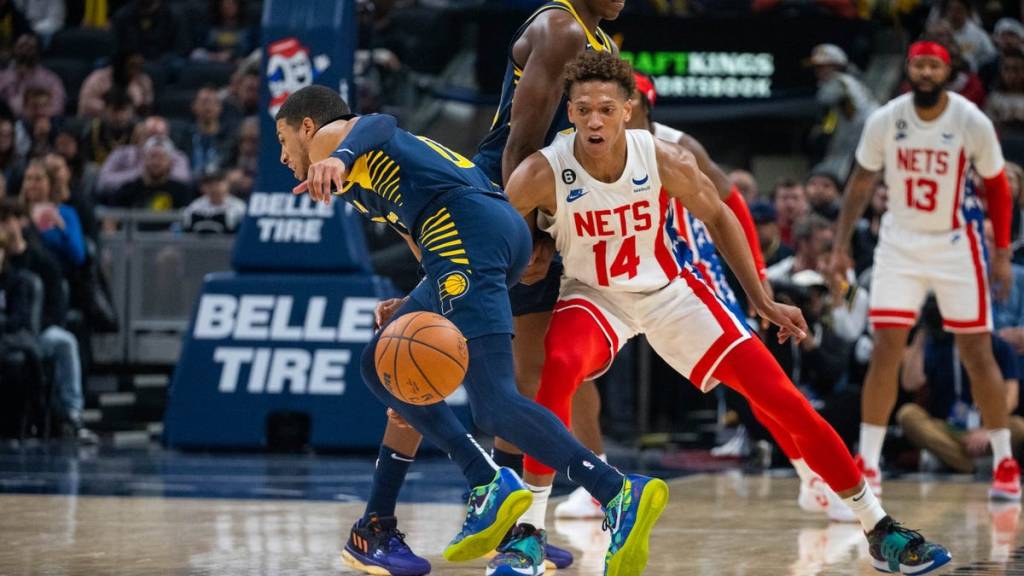Court Decision: EBay's Section 230 Defense Against Banned Chemical Sales Fails

Table of Contents
The Case Against eBay: A Summary of the Legal Proceedings
The lawsuit against eBay centered on allegations that the platform knowingly facilitated the sale of banned chemicals through its online marketplace. The plaintiffs, [Insert Name of Plaintiffs – e.g., a group of concerned citizens or a regulatory agency], argued that eBay's negligence in monitoring and removing listings for these dangerous substances contributed directly to their availability and potential misuse.
- Specific banned chemicals involved: The lawsuit specifically targeted the sale of precursor chemicals used in the production of explosives, such as [Insert specific examples of chemicals – being mindful of not providing information that could be misused]. These chemicals are heavily regulated and require strict licensing and control under [Insert relevant laws and regulations].
- Details about the sellers involved: The sellers involved were primarily third-party vendors operating on eBay's platform. The lawsuit claimed eBay failed to adequately vet these sellers or monitor their listings for prohibited items. The plaintiffs argued that eBay’s lax approach created a marketplace where illegal chemical sales could thrive.
- The legal arguments presented by the plaintiffs: The plaintiffs argued that eBay was negligent in its oversight of the platform and actively aided and abetted the illegal sale of banned chemicals. They contended eBay’s failure to implement sufficient monitoring and removal processes directly contributed to the harm caused by the illegal sales.
- The specific legal claims made against eBay: The claims included negligence, aiding and abetting, and potentially violations of specific state and federal laws concerning the sale and distribution of hazardous materials.
eBay's Section 230 Defense and its Failure
eBay attempted to utilize Section 230 of the Communications Decency Act as a defense against the allegations. Section 230 generally protects online platforms from liability for content posted by their users. eBay argued that as an intermediary platform, it should not be held responsible for the actions of its third-party sellers.
- Explanation of Section 230 and its relevance to online platforms: Section 230 is a cornerstone of internet law in the US, shielding online platforms from being treated as publishers or speakers of user-generated content. This protection is critical for the functioning of many online platforms.
- Detail eBay's argument regarding their role as an intermediary platform: eBay's defense rested on its claim that it is merely a platform connecting buyers and sellers and is not directly involved in the creation or sale of the banned chemicals. They argued they should not be held liable for the actions of independent sellers.
- The court's reasoning for rejecting eBay's Section 230 defense: The court's decision emphasized that Section 230 protection is not absolute. The court likely found that eBay’s actions, or lack thereof, went beyond simply hosting content and actively contributed to the illegal activity. The specific reasoning will likely center on [Insert specific points from the court’s reasoning if available, e.g., failure to adequately monitor known problem areas, insufficient enforcement of its own terms of service].
- Discussion of any specific actions or inactions by eBay that contributed to the court's decision: [Discuss specific examples from the court documents if available. This could include evidence showing awareness of illegal activity and failure to respond adequately, poor enforcement of their own rules regarding banned substances, etc.]
Implications for Other Online Marketplaces and E-commerce Businesses
This court decision carries significant weight for the entire e-commerce landscape and online marketplaces. The ruling sets a crucial precedent, impacting how platforms approach their responsibility in regulating the sale of potentially harmful goods.
- Increased legal scrutiny for online marketplaces selling potentially harmful goods: Expect increased regulatory scrutiny and potential legal challenges for platforms selling items that could be misused or cause harm.
- The potential for increased liability for platforms failing to effectively monitor and remove illegal listings: The ruling emphasizes the need for proactive monitoring and enforcement of terms of service, particularly concerning regulated goods. Platforms can no longer simply claim ignorance or rely solely on user reporting.
- Discussion of the need for improved monitoring and enforcement mechanisms on online platforms: This ruling necessitates a reassessment of current platform safety measures. Platforms need to invest in more sophisticated monitoring tools, improve reporting mechanisms, and strengthen their processes for removing illegal listings.
- The potential impact on the sales of regulated goods on major e-commerce sites: Expect changes in how major e-commerce platforms handle the sales of regulated goods, including potentially stricter verification processes for sellers and more rigorous monitoring of listings.
- Potential shifts in risk assessment and liability management for online businesses: Companies will need to reassess their risk profiles and implement more robust legal and compliance measures to mitigate potential liabilities.
The Future of Section 230 and Online Platform Responsibility
This case may significantly impact future interpretations of Section 230 and the ongoing debate surrounding online platform responsibility.
- Potential legislative changes regarding Section 230 in light of this decision: This decision may fuel further calls for reform or clarification of Section 230, possibly leading to legislative changes that better define the responsibilities of online platforms.
- The ongoing debate regarding the balance between free speech and platform responsibility: The ruling highlights the complex tension between protecting free speech and preventing the use of online platforms for illegal activities.
- Increased pressure on online platforms to proactively monitor and regulate content: Expect significantly increased pressure on online platforms to implement robust content moderation systems and actively prevent the sale of illegal or harmful goods.
Conclusion
This court decision against eBay serves as a significant warning to all online marketplaces. The failure of eBay's Section 230 defense underscores the growing legal responsibility of platforms to actively prevent the sale of illegal goods, regardless of their role as intermediaries. This ruling has significant implications for the future of Section 230 interpretations and the operational practices of e-commerce businesses. The sale of banned chemicals online, and other regulated goods, will be subject to much stricter scrutiny.
Call to Action: Understand the implications of this court decision regarding Section 230 and banned chemical sales for your online business. Consult with legal counsel to ensure your platform complies with all relevant laws and regulations related to the sale of regulated goods. Stay informed on future developments regarding Section 230 and legal liability for online marketplaces. Effective monitoring and responsible practices are crucial to avoiding similar legal challenges.

Featured Posts
-
 Nine Points Separated Ajax From Glory A Game By Game Breakdown
May 28, 2025
Nine Points Separated Ajax From Glory A Game By Game Breakdown
May 28, 2025 -
 Domaci Politika Pirati A Zeleni Planuji Spolecny Boj O Snemovnu
May 28, 2025
Domaci Politika Pirati A Zeleni Planuji Spolecny Boj O Snemovnu
May 28, 2025 -
 Alejandro Garnacho Transfer News Chelseas Approach And Man Utds Position
May 28, 2025
Alejandro Garnacho Transfer News Chelseas Approach And Man Utds Position
May 28, 2025 -
 Pacers Vs Knicks Game 2 Tyrese Haliburton Props And Betting Predictions
May 28, 2025
Pacers Vs Knicks Game 2 Tyrese Haliburton Props And Betting Predictions
May 28, 2025 -
 Global Cities And The Perils Of Dangerous Climate Whiplash A Report Summary
May 28, 2025
Global Cities And The Perils Of Dangerous Climate Whiplash A Report Summary
May 28, 2025
